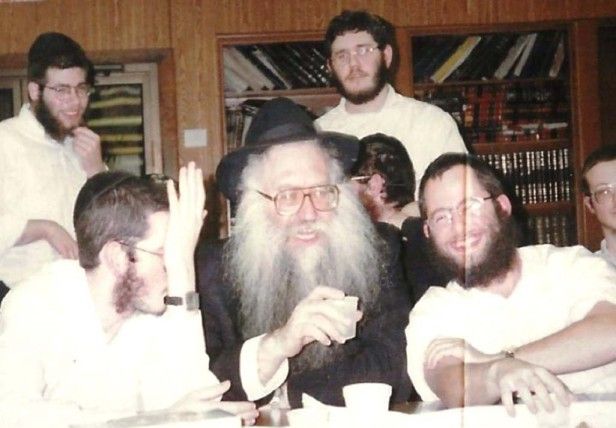R’ Chaim Steiner, Deputy Mayor of Kiryat Malachi: My mechanech: the mashpia, R’ Elimelech Zweibel
 The mashpia, R’ Elimelech Zweibel, was like a father to me during the period when I left Eretz Yisroel for the first time in my life, close to forty years ago.
The mashpia, R’ Elimelech Zweibel, was like a father to me during the period when I left Eretz Yisroel for the first time in my life, close to forty years ago.
I was born in Yerushalayim to a chareidi family, and during my time in yeshiva I became close to Chabad. At a certain point, I felt that the time had come to switch to a Chabad yeshiva. I am grateful to R’ Tuvia Blau for suggesting and arranging for me to learn in the Chabad yeshiva in Morristown. And so, at age 19, I left the holy city in which I was born and raised and educated, and I left Eretz Yisroel for the first time and went to learn in yeshiva in Morristown.
The initial conditions were quite complicated for me, far more than for any other bachur who was there at the time. It’s pretty easy to imagine, a young bachur arrives from Yerushalayim straight to America, without the language or any knowledge of the local mentality, at the same time that he is first entering the world of Chabad with all that entails.
That is where R’ Meilich Zweibel, who passed away earlier this year, entered the picture.
R’ Zwiebel was literally like a father to me, both materially and spiritually. I am not talking about helping me at a given point, or supporting me through some specific issue. He literally walked me with “ways of sweetness” and infinite patience into the world of Chabad, while concerning himself with all of my material needs.
During the period that I learned in Morristown, I felt that there was someone looking out for me. R’ Zwiebel asked me time and again about my material conditions, about the challenges of language, about making friends and keeping in touch with my folks back home. Sometimes this would be when having personal conversations, and sometimes just when we bumped into each other in the yeshiva. He always found a way, with gentleness and wisdom, to find out if everything was okay with me.
Just as with my material welfare, the same was with my spiritual wellbeing, primarily in the study of Chassidus which was new for me. Although I had tasted of the teachings of Chassidus when I began to get involved with Chabad, it had not prepared me for studying Chassidus for hours a day. All around me were students who had been learning Chassidus already from a young age, and they were familiar with all of the concepts, and I was the only one who did not understand basic concepts of Chassidus.
There were times that I sat in the Chassidus class of R’ Zwiebel without understanding a single thing. However, in his great wisdom, he knew to throw in, here and there, an explanation or a small addition that was intended for me. He did it without stating openly that it was for my benefit, but I knew that it was said special for me, and so I too was able to understand what was being learned. At the same time, he devoted a lot of time to me and we had many personal talks in which, with his trademark patience and calm, he opened a window for me into the study of Chassidus. He taught me concepts, clarified for me what are the “ways of Chassidus,” explained Chabad customs, and walked me step by step into the world of Chabad.
Over time, I began to feel that I was changing from being an “ignoramus” in Chassidus into someone who knows and understands the concepts, the reasons for the customs, and obviously all that a Chassid needs to know about the Rebbe and hiskashrus.
In my current position as Deputy Mayor of Kiryat Malachi, I frequently visit schools and sit on a number of panels that deal with education. From the bit that I have learned, I would like to offer the following recommendation to all educators and teachers: Please, do all that is in your power to become close to the students, and relate to each one as if he were your own child. It is true that we need to maintain discipline in the classroom, but the primary goal should be to draw the student close in a fatherly and loving fashion.